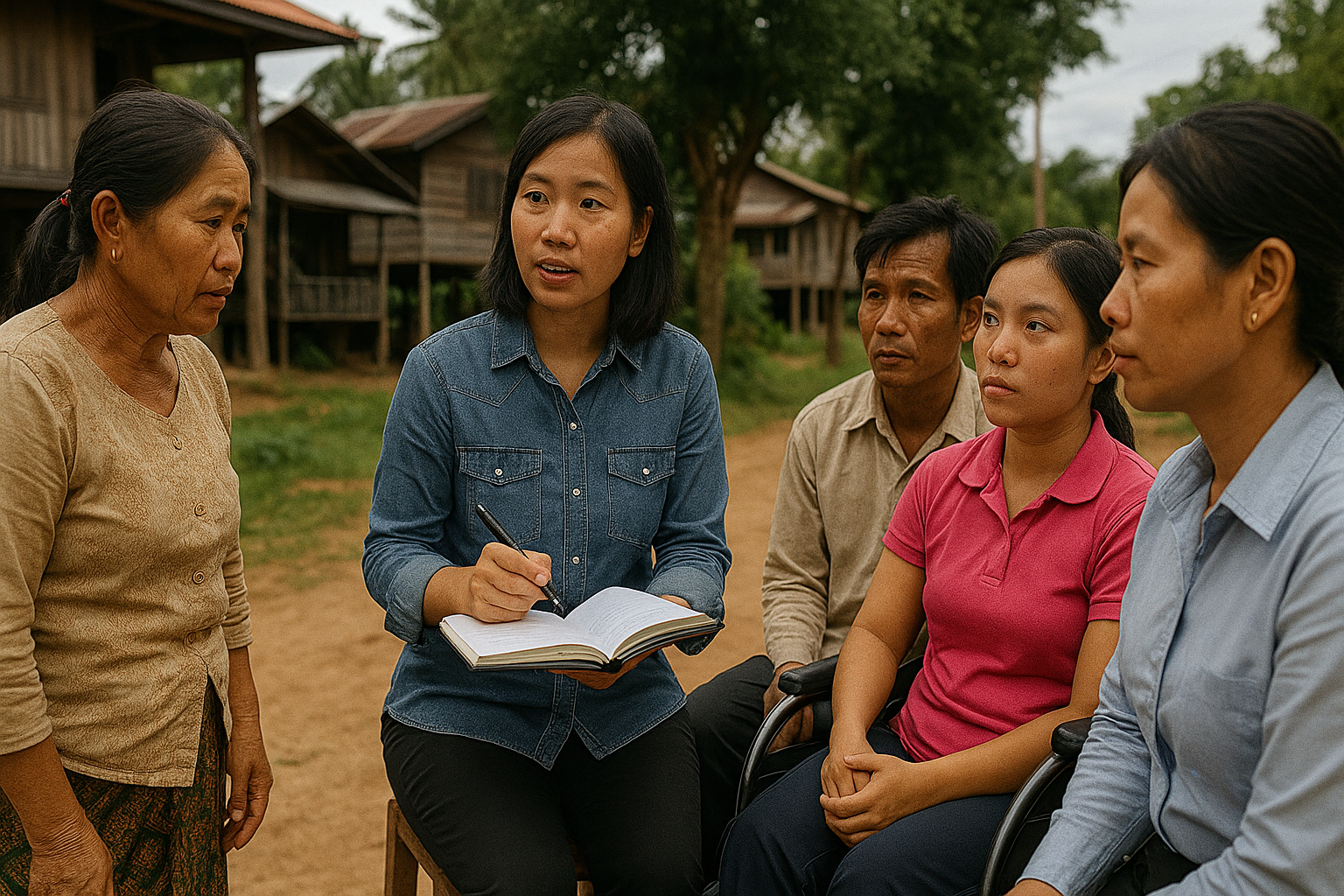Making the Invisible Visible: Lao PDR’s Push for Gender, Disability, and Inclusion Data
The Guidelines on GEDSI Data in Lao PDR call for integrating gender, disability, and social inclusion into national data systems to make invisible inequalities visible. By adopting standardized definitions, inclusive survey tools, and coordinated governance, Lao PDR can build fairer, evidence-based policies that leave no one behind.

The Guidelines on GEDSI Data in Lao PDR are the outcome of collaboration between the Lao Statistics Bureau, UNFPA, UNICEF, UN Women, and regional research institutes such as the Economic Research Institute for ASEAN and East Asia (ERIA) and the Mekong Regional Research Center. The document sets a clear tone: data that ignores gender equality, disability, and social inclusion cannot serve the nation’s development goals. In Lao PDR, where diversity of ethnicity, geography, and social identity is profound, inclusive data is not merely a technical concern but a moral obligation and a legal responsibility under the Sustainable Development Goals and the Convention on the Rights of Persons with Disabilities. Without systematically capturing the experiences of women, persons with disabilities, and marginalized ethnic groups, policies risk being blind to the very populations they are meant to uplift.
Definitions That Shape the Debate
A central contribution of the guidelines is the way they frame GEDSI concepts. Gender is treated beyond the narrow binary of men and women, acknowledging diverse gender identities and the social roles that shape opportunity. Disability is approached through a rights-based lens, focusing on functional limitations and how these interact with environmental and social barriers rather than medical conditions alone. Social inclusion is defined as the dismantling of systemic obstacles that exclude people based on ethnicity, poverty, location, or age. These definitions matter deeply: as the report argues, flawed concepts generate flawed data, which in turn yields misguided policies. By insisting on robust, internationally aligned definitions, such as the use of the Washington Group Questions on disability, the guidelines lay a foundation for evidence that is accurate, comparable, and actionable.
Gaps That Conceal Inequality
The report devotes significant attention to the weaknesses of existing data practices in Lao PDR. Household surveys often stop at sex-disaggregated statistics, missing how gender intersects with disability or ethnicity. Administrative systems across ministries are fragmented and rarely harmonized, making it difficult to construct comprehensive GEDSI indicators. Disability data is particularly problematic: inconsistent definitions and methodologies lead to unreliable results and large sections of the population remaining statistically invisible. The document stresses that without trained enumerators who can engage sensitively with respondents, underreporting is common. The tables and illustrative charts embedded in the middle of the guidelines provide striking evidence: when figures are broken down by disability or minority status, previously hidden disparities in education, health, and employment become sharply visible. These gaps, the authors argue, reveal why inclusive data is not a luxury but a necessity.
A Framework for Inclusive Statistics
At the heart of the guidelines lies a practical framework for embedding GEDSI principles into national data systems. It begins with ethical standards: data must be collected with respect, informed consent, and confidentiality. Participation of marginalized communities is emphasized to build trust and ensure accuracy. The guidelines recommend integrating GEDSI modules at every stage of the data cycle, from survey design to questionnaire construction and monitoring frameworks. Training is identified as a crucial enabler, equipping statisticians, ministry officials, and enumerators to handle sensitive topics responsibly. Examples from health and education highlight how disaggregated data can transform policy design. A maternal health program, for instance, achieves sharper targeting and better outcomes when informed by data showing rural women’s barriers to accessing antenatal care. Similarly, education initiatives can be recalibrated when the struggles of disabled children are systematically documented rather than assumed.
Roadmap Toward Lasting Change
The implementation strategy laid out in the guidelines is both phased and pragmatic. In the short term, agencies are urged to adopt common definitions and begin disaggregating existing datasets. The medium-term goal is embedding GEDSI modules into national surveys and censuses, ensuring that every major dataset reflects the realities of marginalized populations. In the long run, GEDSI must be institutionalized, becoming a routine part of statistical governance and embedded in the DNA of public administration. The Lao Statistics Bureau is tasked with coordinating these efforts, while line ministries are expected to integrate GEDSI into their sectoral data. Development partners are asked to align their surveys with national standards, and civil society organizations, particularly those representing persons with disabilities, are positioned as vital allies in ensuring data captures lived realities. Monitoring frameworks with clear indicators are recommended to track progress, ensuring accountability and continuous improvement.
The guidelines conclude with a compelling message: inclusive data is the pathway to inclusive development. In a nation as diverse as Lao PDR, failing to count certain groups is equivalent to excluding them from progress. The document insists that GEDSI data is not about checking boxes for international commitments but about building a society where policymaking is fair, evidence-based, and transformative. By adopting these guidelines, Lao PDR is urged to take a decisive step toward embedding fairness, accuracy, and inclusivity into its development planning. The call is both urgent and hopeful: only when the invisible are made visible in data can the promise of equitable growth be fulfilled.
- READ MORE ON:
- UNICEF
- UNFPA
- social inclusion
- Lao PDR
- GEDSI
- FIRST PUBLISHED IN:
- Devdiscourse










